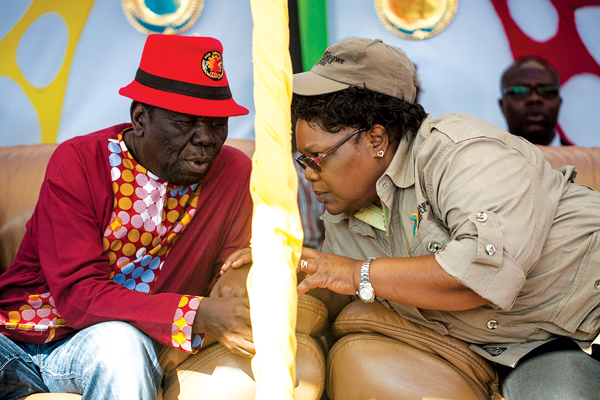
Coalitions have been known to win elections against some of the most brutal dictatorships in the world from the likes of Augusto Pinochet of Chile to the recent ousting of the Gambian dictator Yahya Jammeh. We do not need an opinion poll to measure the mood of hope and optimism among most Zimbabweans. It is clear that most Zimbabweans want a formidable force that can unseat the brutal autocratic Zanu PF regime at all costs. A good grand coalition may achieve this by avoiding another vote split which, along with repression, benefited Zanu PF in 2008.
By Kingstone Jambawo,Our Reader

The National Electoral Reform Agenda (Nera), which was formed to advocate for democratic electoral reforms, has created a meeting place for such an occurrence in Zimbabwe. Can it go all the way? It’s success in promoting dialogue with the Zimbabwe Electoral Commission (Zec) surely should pave way to reducing the existing opposition parties’ conflicts and encourage responsible political leadership. Time is running out.
Ever since MDC-T leader Morgan Tsvangirai and the then ZimPF leader Joice Mujuru jointly addressed a rally in Midlands at which Mujuru chanted “chinja”, talk of a grand coalition has been hyped. The prospect sounded promising.
Failure to establish a successful grand coalition will be catastrophic to achieving democracy in Zimbabwe, which will result in more political uncertainty and will weaken the activists’ efforts for democratic reforms. Far more than any opposition political party, it is the activists’ movements that are independent from any political party who represent democracy in Zimbabwe.
It is these activists who have woken Zimbabweans to the need for a transparent and accountable political leadership for the revival our economy, something that has lacked from our opposition parties. The main opposition MDC-T has been engulfed in internal squabbles since its formation resulting in many splits, weakening its position to hold Zanu PF to account.
The overall objective of a grand coalition should be to increase the opposition parties’ electoral competitiveness by pooling together their limited resources so that they are more effective. However, there are too many formations of minor political parties that threaten the credibility of the mooted coalition. Some opposition parties have already formed a partnership dubbed the Coalition of Democrats (Code), seemingly in preparation for enjoying the spoils of office without regard for policies to improve the socio-economic outcomes of the Zimbabwean people. They appear to have activated the scramble for self-positioning ahead of the crucial negotiations for a grand collation.
In the ideal world, there are a number of challenges for opposition parties participating in a grand coalition as they attempt to:
- Chamisa under fire over US$120K donation
- Mavhunga puts DeMbare into Chibuku quarterfinals
- Pension funds bet on Cabora Bassa oilfields
- Councils defy govt fire tender directive
Keep Reading
- Uphold their distinct party identity while respecting their commitments to their grand coalition partners and party members;
- Develop apparatus for harmonising with other grand coalition partners and to transfer coalition goals, duration, and it’s intended accomplishments to the Zimbabwean citizens; and
- Show their party members that this cross-party co-operation is not a sign of weakness or betrayal of their core values, but rather a sign of strength given the desperate situation that Zimbabwe finds itself in. However, ours is not an ideal world.
How many of these numerous opposition parties are actually relevant in providing an electoral choice?
Does their mere existence make them significant?
It appears as if most of these opposition parties are solely interested in the sharing of spoils of victory, such as Cabinet posts/portfolios and definitely not by party ideology. While a grand coalition needs to be built around collaboration, consensus, consultation, and compromise, ideology does not seem an important factor in present-day Zimbabwean politics.
There is a risk of an unprincipled coalition since more of these personalised political parties have erupted. The current number of political parties in a country with a population of 14 million shows that opportunism and short-term political manoeuvring is at play.
Everyone wants to be the next President. There has been a tendency of forming political parties in order to serve particular interests of key players involved most of whom are now looking to capitalise on the prospect of a grand coalition. Some are clearly feeding the egos of their leaders with no regard for the concerns of the broadest range of Zimbabwean citizens, particularly those in rural areas.











